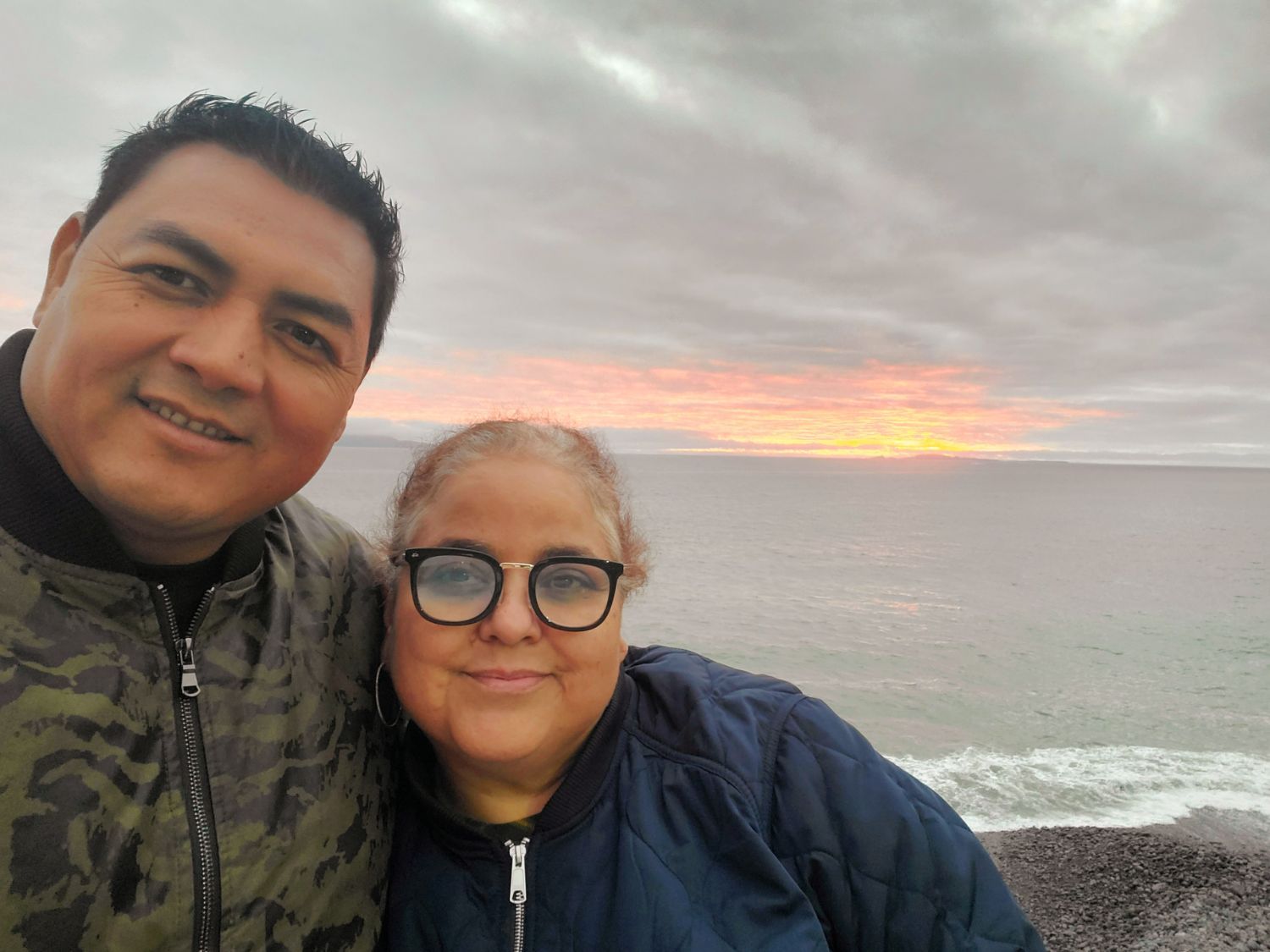The National Immigrant Justice Center (NIJC) will be at the U.S. Supreme Court on Tuesday to defend U.S. citizens' rights to due process when their spouses' visa applications are denied.
Oral arguments in Department of State v. Muñoz will take place on Tuesday, April 23, at 10 a.m. Eastern Time. You can watch a livestream of the proceedings here.
Sandra Muñoz is a U.S. citizen and an award-winning, Los Angeles-based civil rights attorney who represents workers who have been subject to workplace abuse. She met Luis Asencio-Cordero in 2008 and the couple married two years later. In 2013, Sandra initiated the immigrant visa process by applying for Luis to become a lawful permanent resident. The couple established that their marriage was in good faith.

Luis and Sandra
The Department of Homeland Security (DHS) then conducted a background check on Luis to determine that he posed no risk to national security and found that Sandra would suffer extreme hardship if she were separated from her husband or forced to move to El Salvador. The next step was a consular interview in El Salvador. The couple anticipated a short stay abroad, but for Luis that stay is now approaching 10 years.
After waiting weeks for a decision, Sandra and Luis learned that the consular officer had denied their visa application. The consulate provided no explanation for the denial except a citation to a statute that says a person is inadmissible if the officer has reason to believe they will commit “any” crime at some unknown point in the future.
Sandra and Luis tried to refute the finding, but without further information about why the consulate had declared Luis inadmissible, that task was impossible.
Later, after the couple sued in federal court to challenge the denial, the consulate said that the decision was “based on” a criminal review, an interview with Luis, and his tattoos. But Luis has no criminal record and he has consistently denied any gang affiliation. It is therefore unclear whether his visa was denied because of his tattoos, because of racial profiling, or because of a mistake in unreliable intergovernmental data sharing systems that might have erroneously tied him to a criminal record in his home country.
“The U.S. government has kept Luis and me separated across borders without ever providing us a direct or clear explanation for why he should not be allowed to return to our home in Los Angeles,” said Sandra, a former president of the Latina Lawyers Bar Association and recipient of the California Lawyer Attorney of the Year Award in 2016. “As a result, I’ve endured personal medical crises, the deaths of my mother and my sister, and all of the day-to-day highs and lows that are part of daily life, without my love and greatest source of support by my side. I’m ashamed that my country continues to insist we do not have a right to build a life here together, especially based on the racist thinking that a Latino man with tattoos representing his pastime activities and La Virgen de Guadalupe is somehow a threat.”
NIJC is co-counsel in Sandra and Luis’s case with Eric Lee of the Diamante Law Group and Erwin Chemerinsky, dean of the University of California, Berkeley. NIJC agreed to join the team in arguing this case at the Supreme Court because it raises concerns that impact thousands of Americans in mixed-status marriages, including many NIJC clients. The issues at stake include the secrecy behind the U.S. State Department’s visa decisions, the important interests that U.S. citizens have in the marriage-based immigration process, and what process if any exists for correcting erroneous consular decisions.
In a brief sharing the stories of 12 other U.S. citizens who have been separated from spouses following unexplained visa denials, International Refugee Assistance Project and American Families United stated: “A consular officer’s denial of a visa to a noncitizen spouse impacts the entire family. The resulting family separation can impact a family’s financial situation as well as the health and emotional well-being of all family members. ... Were this Court to foreclose all judicial review, the fate of thousands of American families would lie in the hands of a singular consular officer.”
Your support allows NIJC to keep fighting for the rights of families like Sandra and Luis. Please consider a donation to help us continue this work. If you’d like to learn more about the case and other impacted families impacted, visit: https://immigrantjustice.org/court_cases/us-department-state-v-munoz

